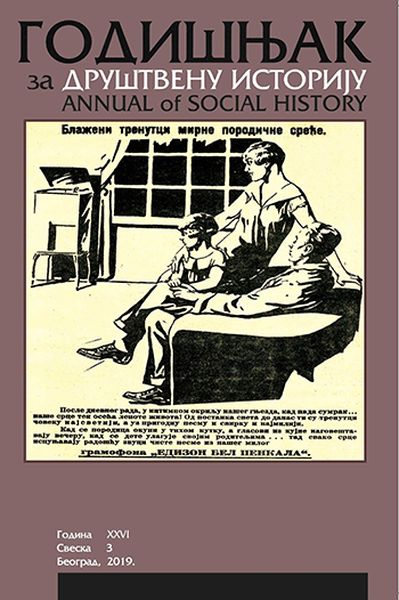Аграрне реформе на Балкану после Првог светског рата – упоредни преглед основних карактеристика
Agrarian reforms in the Balkans after World War I – comparative overview of basic characteristic
Author(s): Jelena RafailovićSubject(s): History, Military history, Recent History (1900 till today)
Published by: Udruženje za društvenu istoriju
Keywords: agrarian reforms; Balkans; interwar period; land legislation; expropriation;
Summary/Abstract: The article presents a comparative overview of basic characteristics of agrarian reforms implemented in the Kingdom of Serbs, Croats and Slovenes, and in Romania, Greece and Bulgaria after the World War I. Its legislative frame was analyzed, through its basic principles and the extent of expropriation and effects of the reform, with the aim to point out the similarities and differences and to contribute to a comprehensive understanding of this question within the Balkan history. Agrarian reforms were more a part of social and political needs than an integral part of the economic development. When making conclusions about agrarian reforms it is important to separate the context of social justice and development of successful agriculture. In social context agrarian reforms were more successful that in economic one. There were more problems, such as inability to create economic development or sustainable agriculture; small properties offered insufficient quantities for the owners, and for capital accumulation. Agrarian reforms only partly influenced progress and sustainable agriculture, while effects on economic production were twofold. In the long term, reduction of progressive and large properties caused inevitable fall of production, and unabled development of the sustainable agricultural sector, growth of capital, investments and technical and technological innovations. On the other side, short-term effects on the economic condition of the agricultural population and their existence were positive, because they enabled short-scale production and consumption.
Journal: Godišnjak za društvenu istoriju
- Issue Year: 2019
- Issue No: 3
- Page Range: 7-35
- Page Count: 29
- Language: Serbian

